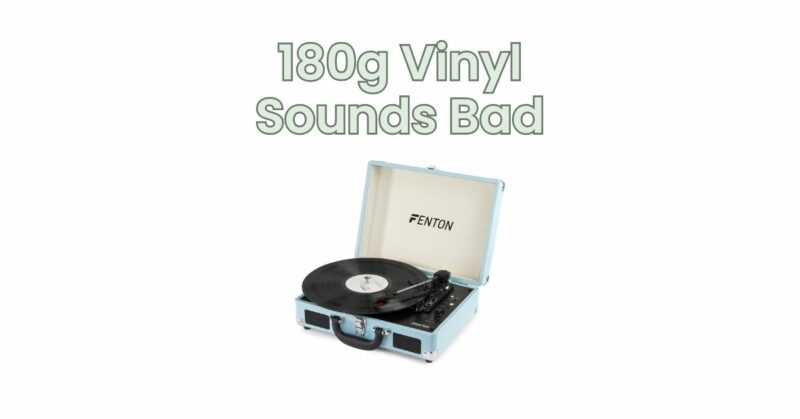Vinyl records have experienced a resurgence in popularity, with many enthusiasts praising their warm, nostalgic sound. However, a common misconception has emerged suggesting that 180 gram vinyl records inherently sound bad. In this article, we will debunk this myth and explore the factors that can contribute to sound quality on 180 gram vinyl records, providing a clearer understanding of their sonic capabilities and dispelling any misconceptions.
Understanding Sound Quality on 180 Gram Vinyl: When it comes to sound quality on vinyl records, multiple factors come into play:
- Mastering and Pressing Quality: The quality of the mastering and pressing processes has a significant impact on sound quality, regardless of the vinyl weight. Poorly mastered or pressed records can result in compromised sound, including surface noise, distortion, or improper tonal balance. It’s crucial to consider the overall production standards rather than solely focusing on the vinyl weight.
- Source Material: The quality of the source material, such as the original recordings or digital masters, greatly influences the sound reproduction. Vinyl records are an analog medium, and the quality of the original recording and mastering directly affects the final sound on any vinyl format, including 180 gram records.
- Turntable Setup and Calibration: The performance of the turntable, tonearm, cartridge, and stylus, as well as proper setup and calibration, are critical in extracting the best sound from any vinyl record. Ensuring proper alignment, tracking force, anti-skate, and cartridge compatibility are essential factors for optimal playback.
Dispelling the Myth: The notion that 180 gram vinyl records inherently sound bad is unfounded. The weight of the vinyl itself does not determine sound quality. Rather, it is a combination of factors such as mastering quality, pressing quality, source material, and playback equipment that influence the sonic outcome.
Benefits of 180 Gram Vinyl: 180 gram vinyl records do offer certain advantages that can contribute to enhanced sound quality and overall listening experience:
- Enhanced Durability: The increased thickness and density of 180 gram vinyl contribute to improved durability and reduced risk of warping, resulting in more reliable playback over time.
- Better Resistance to Surface Noise: The added weight of 180 gram vinyl can help reduce surface noise, such as clicks, pops, and crackles, during playback. The increased mass minimizes the impact of imperfections on the record surface, leading to a quieter listening experience.
- Premium Feel: The heavier weight of 180 gram vinyl records can provide a more substantial and luxurious feel, adding to the tactile experience and collector’s appeal.
Conclusion: The idea that 180 gram vinyl records inherently sound bad is a misconception. Sound quality on vinyl records is influenced by a multitude of factors, including mastering quality, pressing quality, source material, and playback equipment setup. It is important to consider the overall production standards and factors beyond just the vinyl weight when evaluating the sound quality of any record. 180 gram vinyl records offer advantages such as enhanced durability, reduced surface noise, and a premium feel. By focusing on these factors and ensuring high-quality mastering and pressing, you can fully enjoy the unique and immersive sound experience that vinyl records, including 180 gram vinyl, have to offer.


